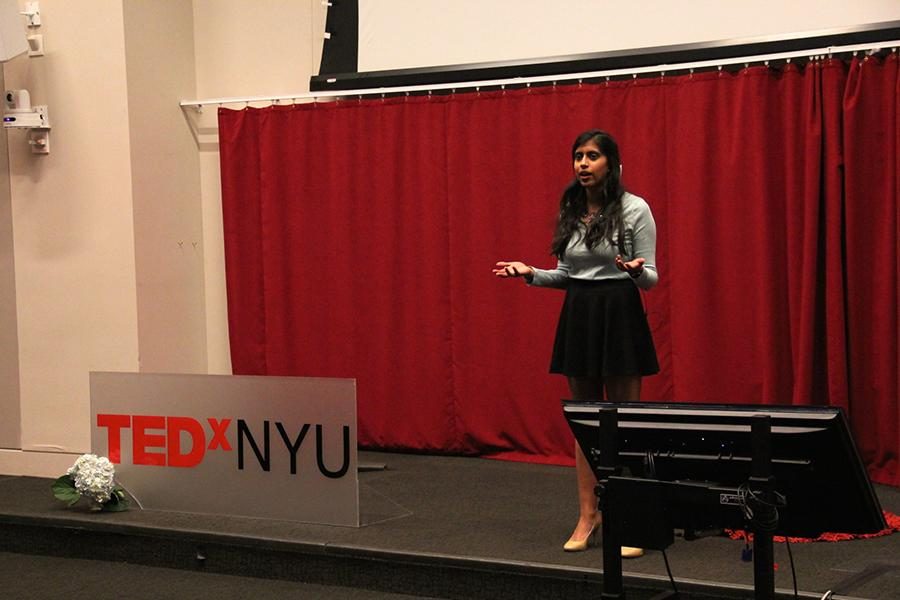Students pitch potential TED talks
March 2, 2015
Discovery in science, inequality in India, the importance of net worth and succeeding in entrepreneurship were the focus of student presentations at The Pitch: Spotlight for TEDxNYU on Friday at the Global Center for Academic and Spiritual Life. Four students competed for a chance to present at an actual TED event.
As part of the competition, students presented a five minute version of a TED talk they would like to give in the future. Steinhardt sophomore and speaker/director for TEDxNYU Nasrin Jafari and Wagner professor Ellen McGrath evaluated the competitors based on presentation and content.
CAS sophomore Sudhi Kaushik, the winner of the competition, shared the story of his non-profit Equality Initiative, which aims to provide education to India’s rural population, and called for awareness and help.
“According to UNESCO there are 800 million adults and 122 million children that are illiterate currently,” Kaushik said. “We as NYU students have the resources and the capabilities to get one step closer to finding those answers, to finding those solutions and to keep trying.”
CAS sophomore Sanjna Verma competed in The Pitch, and shared her story about teaching herself to code. Verma told the audience to focus on something she calls net worthing, rather than on networking.
“In teaching myself how to code, I really began to do something different,” Verma said. “All of a sudden I was increasing my net worth.”
Impana Srikantappa, a Poly graduate student, gave a talk drawing on her experience running a start up clothing company in India, and urged others to seize the resources that are available to them to pursue entrepreneurship. Among those resources, she listed crowd funding and angel networks that could aid entrepreneurs with their ideas.
“We live in such a connected world that has unprecedented access to information, unprecedented access to capital and resources, unprecedented improvements for entrepreneurs and innovators,” Srikantappa said.
CAS alumnus and student at Einstein College of Medicine talked about the dangers of rigidity and memorization in teaching science.
“Think about for a minute how much better science would be, how much better science education would be, if instead of asking little children to memorize an equation, we gave them some tools for guidance and have them discover those equations using their own intuition,” Iqbal said.
After the event, Jafari said he would like to see more people attend the event.
“I’m glad that TED at NYU has expanded from the past couple years that it’s been here,” Jafari said. “I think the word has been getting out more, but I think we have a long way to go.”
Kaushik said the benefits of winning are deeper than just a victory. He said he hopes to use TEDx as a platform to help his non-profit.
“It always feels good to win, but I think it’s what you get afterwards,” Kaushik said. “I recently just met some people in attendance that would improve Equality Initiative — the organization the talk was about — substantially.”
A version of this article appeared in the Monday, March 2 print edition. Email Jimmy Chin at [email protected].



























































































































































